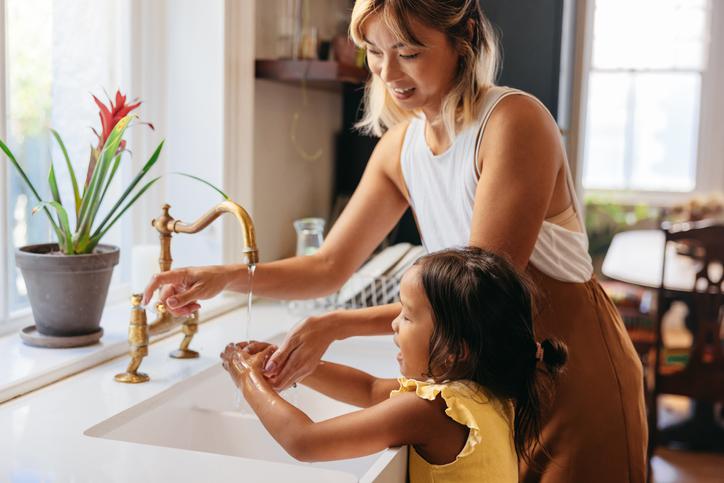
Having hard water in your home doesn’t just leave you with a salty, bitter taste. It can cause spotty dishes, dry skin, high utility bills, limescale buildup, and more. That’s why most homeowners turn to water-softening systems. But what do water softeners do? How do they work? And do you absolutely need one in your home?
Learn more in this helpful guide on how water softeners work.
What Is a Water Softener System?
Water softeners work to filter out the heavy minerals present in hard water, such as calcium, iron, and magnesium. This improves your water quality, which in turn improves its taste, smell, and overall use. Because the presence of these heavy minerals leads to limescale buildup, having a water softener system protects your home appliances, plumbing, and even your skin from being negatively impacted by this buildup.
Does a Water Softener Filter Water?
They filter certain minerals out of water; they don’t filter out contaminants. In other words, a water softener is a type of filter, but it doesn’t purify your water. If you have dirt, sand, or other contaminants in your water, you’ll need a whole-home water purification system.
On the other hand, a water purification system doesn’t necessarily filter hard water minerals. So, having both or a combined system can be beneficial for your home if both purification and water softening are needed!
How Does a Water Softener System Work?
Here’s the basic step-by-step on how water softener systems work:
- A water softener system is installed into your home’s water supply system.
- When a tap is opened, the hard water passes into the water softener’s mineral tank.
- Negatively charged polystyrene beads (called “resin”) in the mineral tank attract calcium and magnesium, which have a positive charge.
- The positively charged minerals cling to the negatively charged beads and remain trapped within the tank.
- The now-soft water (calcium- and magnesium-free) then travels out of your faucet or showerhead or feeds into your dishwasher or clothes washer.
- When your water is not in use, the trapped minerals inside the mineral tank then go through the process of regeneration in the secondary salt storage tank.
- In this tank, you’ll add water softener salt to create a brine, which will then follow this same ion-exchange process as the mineral tank, but in reverse.
- Then, the water containing these hard minerals gets flushed from the tank to a nearby drain.
How to Use a Water Softener System
Because your water softener system is attached to your water supply, actually using your system requires nothing more than opening the tap!
Maintaining the water softener does require a few steps, including:
- Checking the salt level once a month.
- Using the right type of salt for your system.
- Breaking any salt buildup or layers in the brine tank as needed.
- Scheduling necessary maintenance.
Do I Need a Water Softener?
According to the U.S. Geological Survey, 85% of US homes have hard water. But are water softeners worth it to add to every home? It depends. If your hard water levels aren’t severe, it’s likely the biggest issue you’ll run into is occasional limescale buildup. But for others who have a higher hardness level in their water, the greater mineral buildup can do a lot more damage to plumbing, appliances, dishes, laundry, and more, making them more than worthwhile.
All in all, a water softener system is still a fairly large investment, so determining whether your home needs one will require some testing. The best way to do this is by scheduling professional testing with a local plumber who provides water softener services.
A professional will also be able to determine what type of water softener will be best for your home’s needs, and how to properly maintain it.
Related Content: How to Choose a Water Softener: Buying Guide
Why Use a Water Softener?
There are several benefits of water softening systems, including:
- Prevention of limescale buildup on tubs, showers, dishwashers, sinks, faucets, and showerheads
- Improved overall taste and quality of your water
- More efficient plumbing
- Protected and longer-lasting appliances
- Cleaner laundry and dishes
- More effective cleaning products and reduced cleaning time
- Less mineral buildup on skin and hair that can cause dullness, dryness, or irritation
- More efficient water heater
- Cost savings from what would be wasted cleaning products, water, or repairs to appliances and plumbing.
Install a Water Softener System with Benjamin Franklin Plumbing
Don’t let hard water affect the overall efficiency or lifespan of your plumbing or appliances. Count on the team at Benjamin Franklin Plumbing for reliable water testing and water softener system installation. Call us at 1-877-BEN-1776 or book an appointment online.
